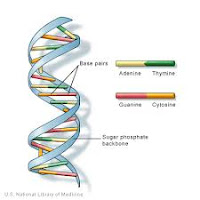NO. Unless you're arrested for a felony offense, you do NOT have to voluntarily give a DNA sample for testing.
DNA analysis has come a long way since I was prosecutor in the late 1980s and early 1990s. In 1992 I successfully convicted a serial rapist in the first case in the Parish of Caddo using DNA evidence. At that time only, only one or two other parishes had used DNA evidence because the science was still fairly new.
So new that very few state crime labs were qualified to evaluate and testify about DNA evidence. We had the analysis and testimony p by an expert from the United States Federal Bureau of Investigation. In order to ensure the admissibility of the evidence and the qualifications of the expert, I spent several hours laying a foundation.
As I recall, the probability that the DNA evidence would match anyone else was less than 1 in 1 billion. At that time, the FBI wouldn't analyze any more if probability went beyond 1:1 billion. That makes sense, there aren't even a billion people living in America. According to the United State Census there approximately 316,000,000 in the United States as 2013.
There are only about 300,000 in the Parish of Caddo, but we didn't rely on the DNA evidence only. We also had eyewitness testimony and fingerprint evidence. So likelihood that anyone else could have committed the crime with a positive identification, fingerprint match and DNA match in Caddo Parish was astronomically improbable.
Of course, NOW DNA evidence is consider the gold-standard. Fortunately, many people who were wrongfully identified have now been released. Unfortunately, DNA evidence can also be rock-solid evidence of guilt.
Legislation is sweeping across the nation with nearly half of the states currently requiring the pretrial collection of DNA samples from individuals who are arrested for various crimes but not yet convicted.


